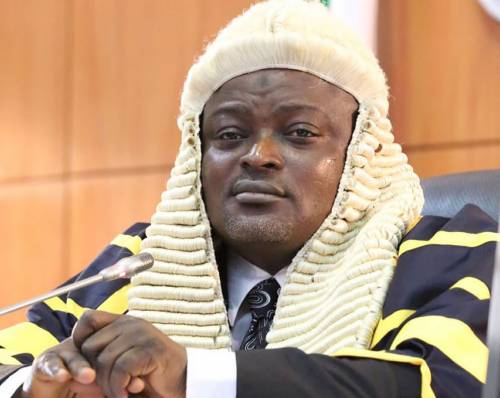The parents of people found guilty of cultism in Lagos State may be punished if the anti-cultism law is amended to that effect.
This is the submission of some lawmakers at the Lagos State House of Assembly during plenary on Tuesday, while discussing a bill sent by the Attorney General of the State, Mr. Moyosore Onigbanjo.
The Speaker of the House of Assembly, Mudashiru Obasa, said there was need to differentiate the various types of cults in the country.
“There is need to differentiate the types of cultism in the country so that we won’t solve one problem and create another. We need to look at the way and manner weapons are used. The existing law should be seriously looked into,” he said.
Obasa committed the bill to the House committee on Judiciary, which was directed to report back to the House in three weeks.
In his contribution, the Majority Leader of the House, Sanai Agunbiade, representing Ikorodu I, said that sponsorship of cultism could not be captured under the bill.
He said some of the cult groups had their sponsors.
Agunbiade who said that the jurisdiction of the offences could not be limited, referred to Section 12 and said that there must be a prove before suspending any student found guilty of cultism.
“Suspension of students without having been proven guilty is already a punishment.
“There must be a prove before suspension. The suspected student should be investigated before suspension. Parents of students who engage in any cult group should also be liable,” he said.
Gbolahan Yishawu, representing Eti-Osa Constituency 02 said that the bill was presented as if it was a new bill, saying it should be an amendment bill.
He added that the scope of the bill should be expanded, adding that it fell short of its own intendment.
“Cultism is what we need to guide against with the information we are hearing on terrorism,” he said.
In his view, Rotimi Olowo representing Somolu I explained that cultism had gone beyond schools environment.
“This should not be limited to schools. It is supposed to extend to the society,” he said.
He cited the example of Aye Fraternity eight days celebration held in his constituency that resulted in the destruction of property.
Olowo posited that some of the police officers were even in cult groups.
According to him, the bill will put an end to the various cults.
Kehinde Joseph posited that the bill was not comprehensive enough.
“If you see what is going on especially when this pandemic started, female beggars, who sat along the road were impregnated and they gave birth to children. Who are the people that impregnated them? Some of the guys did so. I will also support that proposition that parents of those found guilty of cultism must be you punished,” he said.
Yinka Ogundimu, representing Agege I, emphasised that cultism was very rampant in primary schools.
He said while looking into punishment of those found guilty, rehabilitation of the minors who belong to the group should be looked into.
He said that students in tertiary institutions, who might be found guilty must be prosecuted.
Desmond Elliot, representing Surulere I, opined that the bill was not robust enough to cater for the larger society.
“The bill looks childish to me. The bill is supposed to take care of orientation for the children,” he said.
David Setonji, representing Badagry Constituency 2, said that the issue of cultism was a major challenge in the implementation of laws.
“We have laws and we need to empower the security agencies to implement the existing laws,” he added.














